Here are 5 great beginner oil painting tips to make sure you get started off on the right foot. Don’t be afraid to experiment and allow yourself to enjoy the process of being an oil painting beginner!
Let’s get started with tip #1…
Use big brushes…

The first of the oil painting tips I have for you, comes from a teacher who once said, ‘you think through the size of your brush’. That means, when starting out painting, it is important to think of the ‘big picture’ of what you are working on. Keep yourself from getting caught up in unnecessary details.
Working with big brushes makes you think of the things that matter most: light and color. Concentrate on the large areas of light and dark as you paint – doing so make you develop much faster than you ever would when working with small brushes.
If you haven’t yet – Grab my FREE Color Mixing Guide for help with color mixing techniques in your painting!
Make a lot of starts
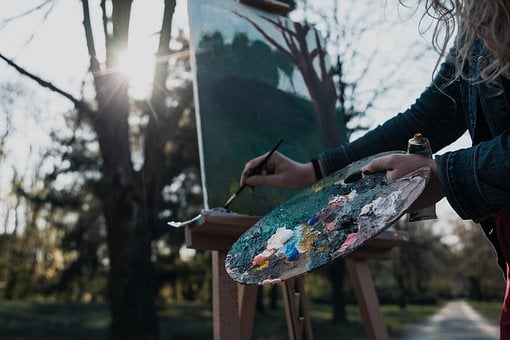
One of the best things you can do as you are learning how to oil paint, is to make a lot of starts!
When you continually do a new painting everyday (or every week/month) you accelerate your learning. By focusing intensely on the groundwork of what your painting practice will be built off of you will establish (not wanting to sound cliche) a firm foundation for yourself.
A clear and concise start is important for every painting you create.
That all said, it is important to focus on the process, not the product. Do not aim toward creating many finished works as in this mindset you are not in the best place to learn. It is important to have fun with painting (especially when starting out).
Don’t be afraid to ruin your painting – start again!
Experiment a lot, do not be afraid of “ruining” a painting, as you can start again! Through all of it you will learn so much. The part of creating art and creating paintings will eventually come naturally through the process of learning.
Of course as you grow, there will be a time to learn to work through the “mistakes” to continue a piece. For now, Just enjoy learning and do not get distracted by making ‘finished’ paintings.
Do small drawing studies before starting your oil painting

Value is the most important thing in painting. Before you start painting it is best to do a small thumbnail value drawing. This will allow you to get a big picture idea of what the values are of your motif/ composition. It is much easier to do something like this on a small scale drawing than it is on a larger painting. So, take some charcoal and mark out where the darkest darks are, the middle values and the lights!
As an oil painting beginner you do not want to cast drawing aside completely. It will help you to build a strong base in seeing value – which will in turn help your painting a great deal!
I highly recommend using extra soft vine charcoal and charcoal paper as it is a very responsive medium. You will quickly be able to build up a sense of the value structure of what you are looking at.
Look at a lot of paintings

Go to museums whenever you can and study great painters. The best way to learn how to oil paint is by looking at paintings and studying from them. Find out if you can set up your easel at your local museum to paint copies. If this is difficult to make happen, a great resource for studying paintings up close is Google Art Project. Simply type in a painter you admire and want to study in the search bar. There will be a wealth of images for you to study. You will be able to look at paintings up close – even closer than in a museum without setting off any alarm!
Also, a great way to develop your own aesthetic is by looking at art. You want to be influenced by the best painters in the world but you also want to remain true to who you are and what your vision is. Learn what you love and don’t love.
Take things slow and get to know your materials
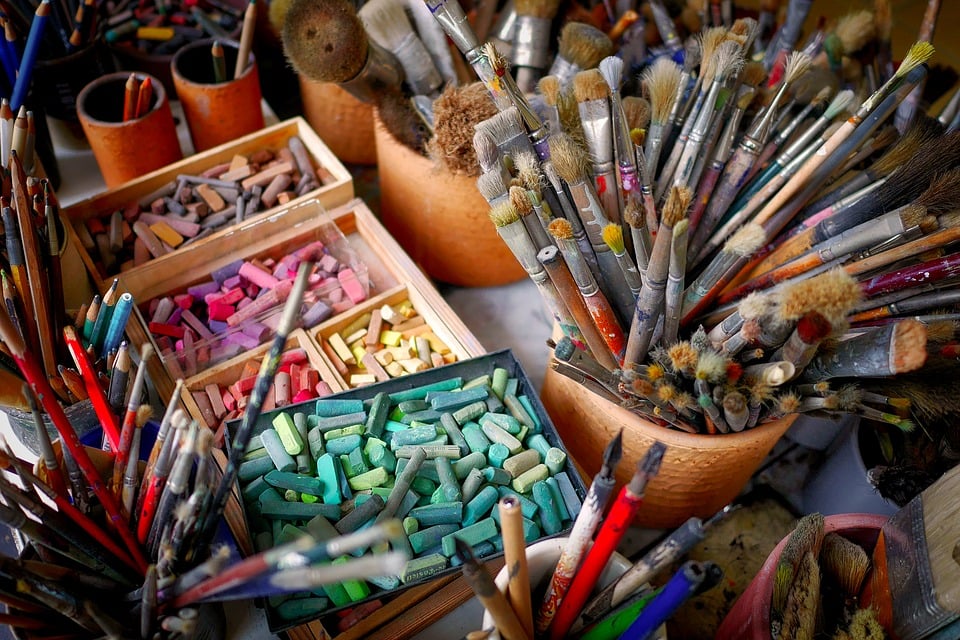
The last on this list of oil painting tips for beginners is to take things slow as you learn.
As a beginner oil painting, you are bombarded with so many new things. The last thing you need is to rush through it all. It is easy to get overwhelmed and discouraged.
Take things step by step and try to keep the mindset that you are a baby learner. Doing so will help you to absorb what you are learning in the present and to build for yourself a strong base.
If you to get really nerdy about learning your materials I highly recommend you check out Ralph Meyer’s The Artist’s Handbook of Materials and Techniques.
Things will not look amazing in the beginning. If you are anything like myself, your paintings might will look downright terrible when you start. Just remember that your focus is to learn and not to have a product. The most important thing to remember is not to give up and keep going at it steadily!
More oil painting for beginners tips and guides for you:



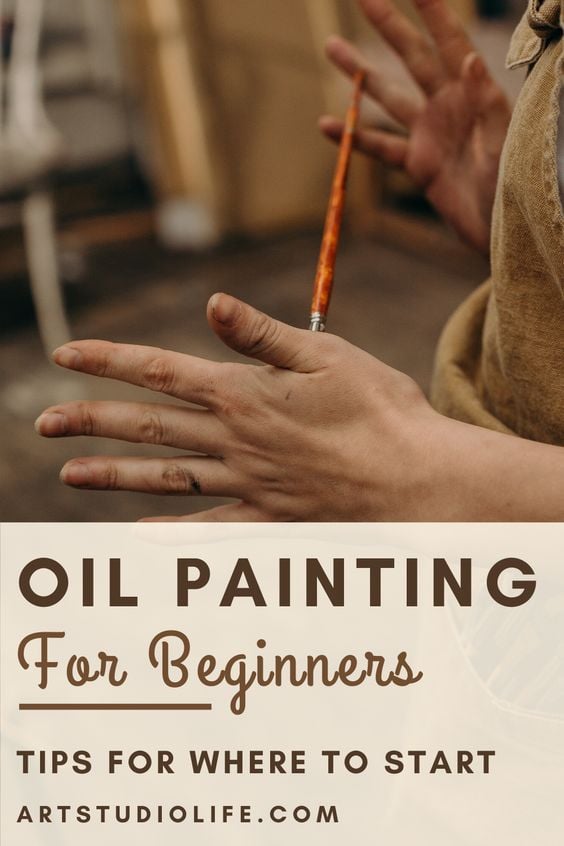

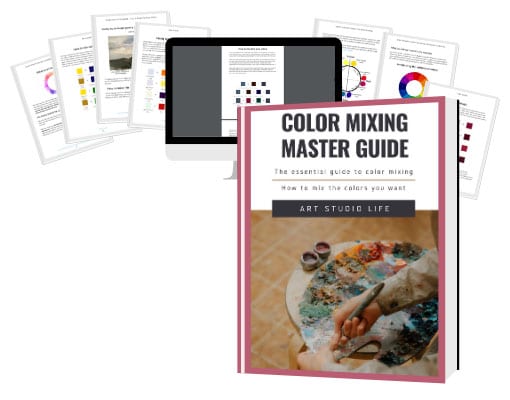
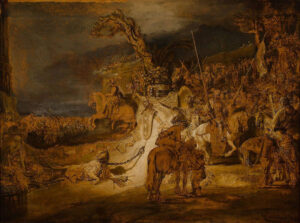
4 thoughts on “5 Oil Painting Tips for Beginners to Make a Great Start”
I am ready to start filling in my color chart and am stalled by what brush to use and confused with doing a brush for each color or cleaning brush after doing one square then cleaning and doing another square or doing each square with a different brush. Yikes! I’m frozen in time.
Oh thank you for mentioning that. I should add some tips for that in the article. I would use the same brush for lighter value colors and a different brush for darker colors. But I would still try to wipe off the brush after each use on a rag. So you don’t need to go to the trouble of fully cleaning the brushes – but just wiping them on a rag 🙂
I think this will help me get over my fear of starting. I am a perfectionish and im so afraid of not doing something perfect that i am psralized some times. I have both watercolors and oils and have some artist ability but just havent stdrtred anything
I am glad to hear that! Yes it can be so scary to start a painting. Once you do it though it will get easier and easier each time. It sometimes helps to approach it in a way of purely enjoying the process and having fun with it (as it should be fun!) – then enjoyment replaces fear 🙂